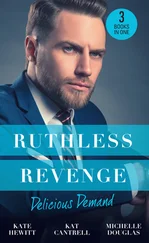But Michael’s secret was that he grew on people, that the more one got to know him, the more compelling he became. Underneath the seriousness were a wicked intelligence and the kindness that was Michael’s defining characteristic. And as he watched Isabelle day after day, the certainty grew within him that if he went about it the right way, this lovely, breathless woman might just see the good in him.
Then came the day that, on an impulse, he followed her. He packed up his laptop quickly, grabbed his briefcase, and walked behind her down College Avenue, two blocks to the corner, where she stopped to unlock the front door of Noah’s Ark. He waited a minute, two, and when he saw the OPEN sign appear on the glass front door, he made his move.
The bell on the door jingled as he entered the shop. The front counter was empty, the store silent. Didn’t he just see her — Isabelle is what Alfredo called her — unlock the door and come in?
“Hello?”
“I’m coming,” is called from the back, and Isabelle appears carrying the third incarnation of the original Mr. Coffee, heavy with water, up to the front counter. “Sorry,” she says, a touch out of breath, he notices, and apologizing as a reflex. “Can I help you?” She is busy plugging in the machine and not really looking at him.
“You carry used textbooks?”
“Some. What are you looking for?”
“ Economic Consequences of Intellectual Property/Copyright Decisions, by Belarsky and Margrove.”
Isabelle shrugs. “I don’t think so — it’s a law book, right? But you could take a look.” She points. “Back wall.”
And Michael makes his way through the overstuffed shelves to the back of the shop while Isabelle climbs aboard her tall stool behind the front counter and, to the reassuring accompaniment of the gurgling water, begins to sort the mail.
And then Michael is back, standing in front of her with the textbook in his hand, and she looks at him fully for the first time. He could be descended from a long line of rabbis, is her immediate first thought: dark and serious, a prominent nose, large, compelling brown eyes, a face of angles, a masculine face that is not the least bit handsome. A face that in its Jewish soulfulness feels familiar to her.
“We had it — wow, great! What are the odds?”
“I had a hunch. You know, I’ve walked past this store maybe hundreds of times and today I just had an instinct — time to come in.” He smiles at her and his face transforms, all the gravity banished, and he looks almost boyish. She smiles back.
“What do you teach?” she asks as she rings up the heavy book.
“How do you know I teach?”
“You could be the poster guy for ‘professor.’ ”
Michael does a quick inventory of his body and clothes. “Oh, no — that bad?”
“It’s not bad at all. You teach at Boalt?”
“Yes, intellectual property law. Well, I guess that’s self-evident, too.” He holds up the newly-paid-for book.
“What is that — intellectual property?”
“Copyright, patents — the work of the mind. How the law protects writers, artists, inventors.”
“Interesting.”
“Do you really think so? Most people’s eyes glaze over when I mention what I do.”
“Well,” she says, grinning at him, “I have a special place in my heart for writers.” She gestures around the store with its thousands of books. “Obviously. It’s great to know that someone out there is interested in protecting them.”
And Michael blushes at the compliment, and she sees it and is charmed that so little praise could elicit so much appreciation. What a nice man. She almost tells him that, then thinks better of it. She tells him later, though, often, and always gets the blush.
They begin to say hello to each other on the mornings their paths cross at Full of Beans. Sometimes Isabelle will sit for a minute at Michael’s table and chat before she rushes off to open the bookstore. Finally Michael asks her to dinner, and Isabelle finds herself saying yes without any attendant excitement or rush. A nice man, good conversation at dinner. Why not? She can’t remember the last time she went on a date.
For years after she asked Casey to move out, his presence in her life and Avi’s, even as it diminished, was enough to occupy Isabelle’s emotional landscape. At first, she couldn’t find a way to have a casual connection with him, an “appropriate connection,” she would say when discussing Casey yet again with Deepti.
And Deepti worried about her. In their late-night conversations, Isabelle in Oakland and Deepti in Baltimore as she finished up her pediatric residency, she would ask Isabelle the crucial question often and in different guises: “What good has your separation done if all you do is talk about and think about Casey?”
“He doesn’t live here anymore. We’re not having sex anymore…at least mostly we’re not.”
“Isabelle!”
“I’ve only weakened a few times.”
“Isabelle!”
“I know.”
And she did know. Deepti was right, but it took her years to truly disengage, to genuinely not want Casey anymore. It happened slowly, excruciatingly slowly, like peeling off a bandage from a badly scraped knee, millimeter by millimeter, but now, five years after their initial conversation in the car, Isabelle can say to Deepti, “I’m done with him,” and mean it.
Perhaps that’s why she said yes to Michael. She really doesn’t know. He asked, she said yes. It seemed reasonable to agree. How different their beginning was from those heady days with Casey when Isabelle was swept away.
She and Michael talked and talked, not in the hectoring way Nate had often had with her, or the needy, self-revelatory way her father often used. But conversation for the pure pleasure of examining things — ideas, concepts, stories. Michael loved to tell stories. Isabelle felt he was a thwarted writer, and Michael didn’t disagree.
“It was never an option,” he told her early in their relationship. They were sitting in Gregor’s Russian Restaurant in San Francisco, with its starched white tablecloths on square tables, eating melt-in-your-mouth beef brisket and crisp potato latkes with applesauce, and Isabelle was taken right back to Sunday dinners at her nana’s — her father’s mother. Her mother’s mother never cooked anything.
“I didn’t need to be reminded of all the sacrifices my parents made to bring us here,” Michael told her. “It was obvious. My father had been a research chemist in St. Petersburg, and he was lucky to get a job as a janitor when we arrived. So getting a good education and choosing a solid and prestigious career — that was my end of the bargain to uphold.”
They always seemed to be inside rooms — restaurants, theaters, classrooms, where she went to watch him teach, then her own living room, then Avi’s room as Michael made a real effort to get to know him. At the beginning that was hard going. It was impossible, really, for Michael to follow Casey, who crowded whatever space he was in, who made the world exciting, who was the ultimate romantic figure, all his focus totally on the moment at hand. And when Avi was the target of that attention, the little boy filled up with pride and a devotion to his dad that left little space for any sort of substitute.
Michael understood early on that he couldn’t compete, and so he let Avi come to him in his own time. And it took years. Years when Avi and Michael were polite to each other but little else, then teenage years when even Avi’s politeness was in short supply. Michael lost faith during that time that they would ever find a way toward each other, and his sorrow about it spilled over into his day-to-day conversations with Isabelle. She couldn’t find the words to comfort him, because she wasn’t sure Avi would ever see in Michael what she had come to cherish. But finally, when it was almost too late, he did.
Читать дальше












